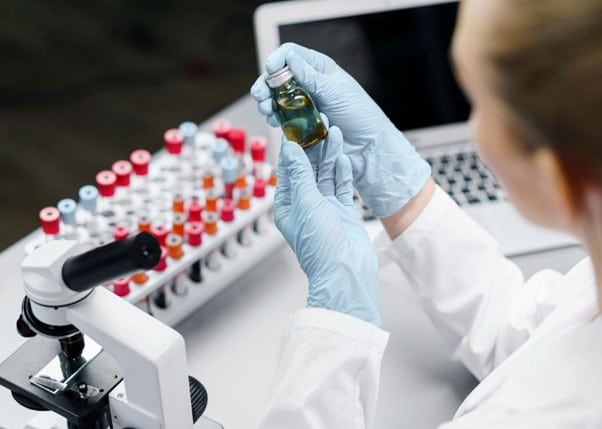AI Revolutionizing Drug Discovery: Trends and Examples from Pharmacology

Artificial Intelligence (AI) is transforming industries worldwide, with pharmacology at the forefront of this transformation. Revolutionizing drug discovery and development, AI is ushering in a new era of innovation in the pharmaceutical sector. Together with IT company Avenga's specialists, let's explore the results of this impact and examine several successful examples of AI usage in this field.
Key AI technologies in pharmacology
When it comes to pharmaceutical industry trends, two main AI technologies stand out—machine learning and deep learning.
Machine learning analyzes extensive datasets on pharmaceutical substances, clinical trials, and patients to identify potential treatment methods.
Deep learning models complex biological systems and processes, such as protein structures, crucial for developing new drugs.
These technologies transform the drug development process, reducing the time and resources needed to find potential drug candidates.
AI results in pharmacology

According to analytical and statistical data, AI's use in the pharmaceutical industry has led to significant breakthroughs, such as:
- new drug development: AI speeds up the identification of new molecules, reducing time and costs for research. For example, AI played a crucial role in developing the COVID-19 vaccine; Atomwise uses AI to predict molecule structures, aiding in the discovery of potential drugs;
- сlinical trials: artificial intelligence optimizes trial planning and data analysis, speeding up product deployment. BenevolentAI applies AI to identify new drug development pathways, accelerating medical approvals.
- personalized medicine: AI analyzes genetic, environmental, and clinical data to develop individualized treatment schemes.
How AI is used to create new drugs
The drug development process using artificial intelligence goes through several stages:
- Target identification – searching for molecules, such as proteins and receptors, that can be targeted by drugs.
- Target prioritization – determining and selecting targets based on their connection to diseases and potential therapeutic benefits.
- Compound prioritization – evaluating drug compound connections to determine priorities for further development.
- Detailed screening – forecasting properties and activities of chemical compounds, speeding up the selection process.
Following this process, artificial intelligence significantly enhances the timelines for developing and creating new pharmaceuticals with considerable potential.
Five examples of AI use in pharmacology

The active implementation of AI in the pharmaceutical industry has allowed scientists to make several incredibly valuable discoveries, including:
- Abaucin – development of a powerful antibiotic against drug-resistant bacteria.
- Target X by Insilico Medicine – creation of a new drug for treating idiopathic pulmonary fibrosis.
- VRG 50635 by Verge Genomic – discovery of compounds for treating lateral amyotrophic sclerosis.
- Exscientia’s A2a receptor antagonist – development of safe cancer treatment methods.
- Absci-de Novo Antibodies – creation of new antibodies.
These examples underscore AI's role in pharmaceutical industry innovations, improving disease understanding, speeding up drug development, and promoting personalized medicine.
Challenges and prospects of using AI in pharmacology
According to Avenga specialists, integrating AI into pharmacology faces challenges such as data volume, implementation costs, and organizational resistance. Addressing these issues is crucial to maximizing AI's potential in drug development.
Overall, using AI in pharmaceuticals opens up vast prospects for healthcare innovations, promising faster and more targeted discovery of new drugs.
Generative AI will allow biotechnological companies to quickly adapt treatments to individual patient needs. This will lead to significant market growth and reduced costs for developing new drugs, speeding up their availability to patients.
